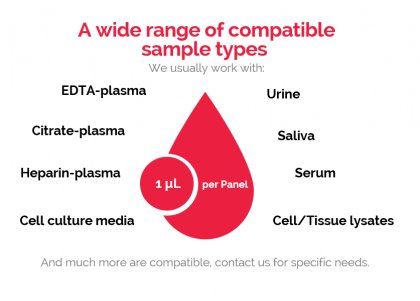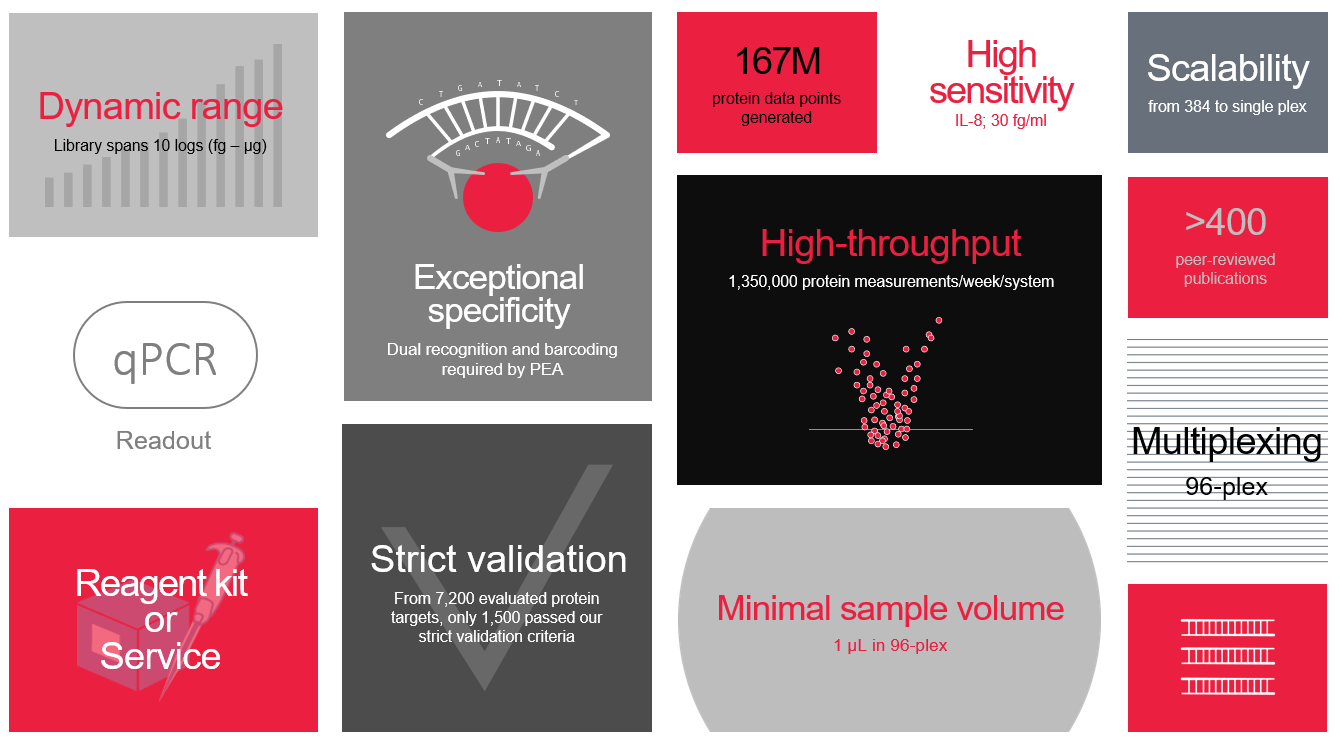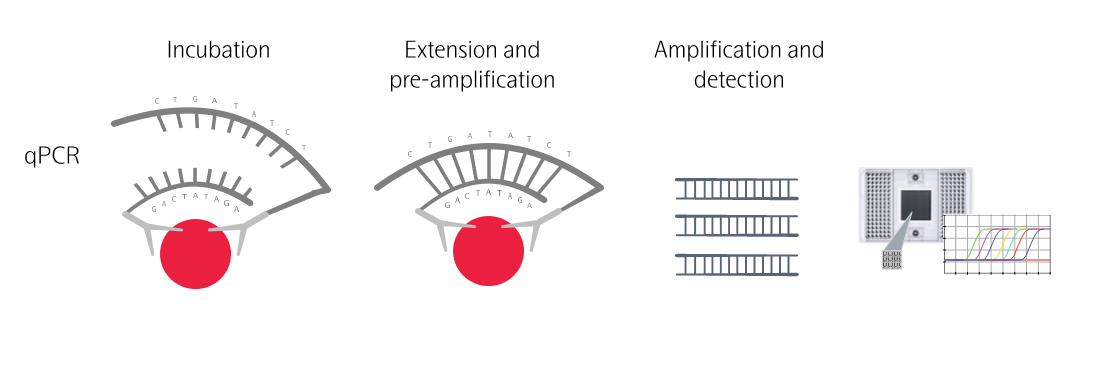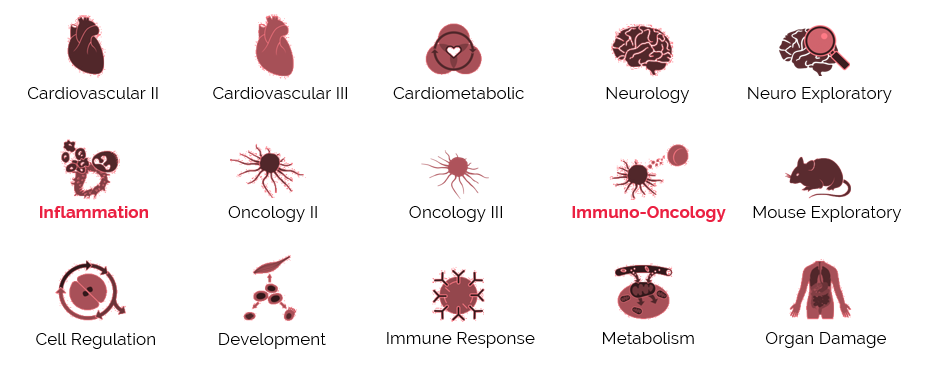We provide high-capacity proteomics analysis for comprehensive protein biomarker discovery using Olink® Target technology.
As real executors of complex biological processes, proteins represent the most important class of biomolecules to understand disease pathology and associated biological processes. They provide the most actionable targets for therapeutic interventions and should be at the center of development of novel, more efficient therapies that can be tailored towards individuals.
Based on the Proximity Extension Assay (PEA), Olink® technology is a 96-plex immunoassay that enables high throughput detection of 92 protein biomarkers in a minimal sample volume (1µl serum/plasma). The assay is also compatible with a diversity of sample matrices.

Olink® PEA is a dual-recognition immunoassay, where two matched antibodies labeled with unique DNA oligonucleotides simultaneously bind to a target protein in solution. When bound on the target, the close proximity between the antibodies allows their oligonucleotides to hybridize, serving as a template for a DNA polymerase-dependent extension step. The resulting unique DNA barcode is finally amplified and quantified by qPCR.
Unlike other immunoassay, PEA guarantees an exceptional specificity by avoiding antibody cross-reactivity thanks to the target dual recognition. Moreover, the exponential amplification properties of PCR allow to achieve a strong readout signal, providing higher assay sensitivity (below pg/ml).
Olink’s® Target96 biomarker panels are dedicated to many diseases and/or biological processes as indicated below. Details on Target 96 biomarker panels are available for download.
For more information on the technology, check out the Olink® Target official webpage.
We support your proteomics projects, from study design and sample analysis to data processing with our Olink® platform!
Key features and advantages of this approach




